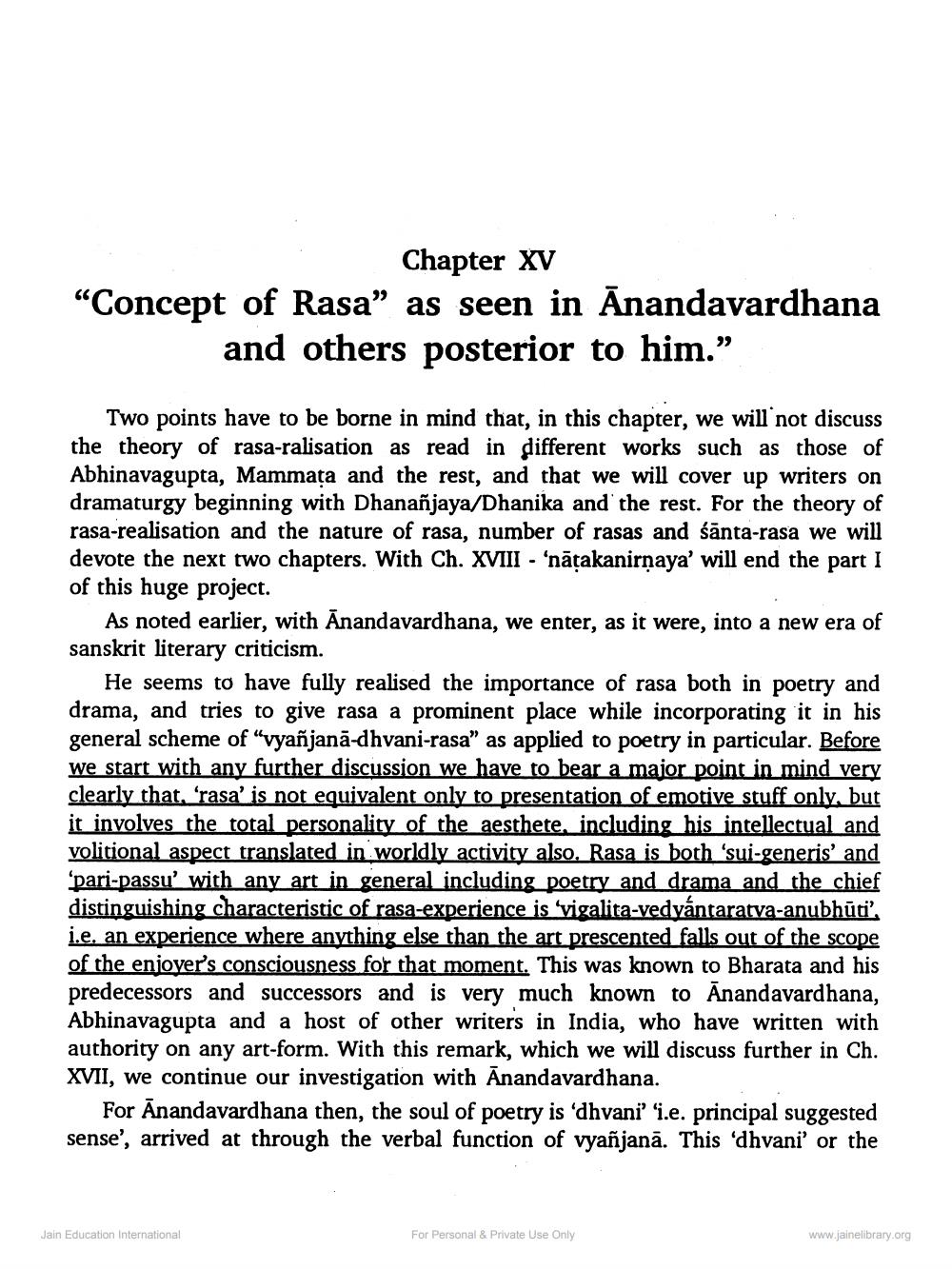________________
Chapter XV “Concept of Rasa” as seen in Anandavardhana
and others posterior to him.".
Two points have to be borne in mind that, in this chapter, we will not discuss the theory of rasa-ralisation as read in different works such as those of Abhinavagupta, Mammata and the rest, and that we will cover up writers on dramaturgy beginning with Dhananjaya/Dhanika and the rest. For the theory of rasa-realisation and the nature of rasa, number of rasas and śānta-rasa we will devote the next two chapters. With Ch. XVIII - 'nātakanirnaya' will end the part I of this huge project.
As noted earlier, with Ānandavardhana, we enter, as it were, into a new era of sanskrit literary criticism.
He seems to have fully realised the importance of rasa both in poetry and drama, and tries to give rasa a prominent place while incorporating it in his general scheme of “vyañjanā-dhvani-rasa" as applied to poetry in particular. Before we start with any further discussion we have to bear a maior point in mind very clearly that, 'rasa' is not equivalent only to presentation of emotive stuff only, but it involves the total personality of the aesthete, including his intellectual and volitional aspect translated in worldly activity also. Rasa is both 'sui-generis' and 'pari-passu' with any art in general including poetry and drama and the chief distinguishing characteristic of rasa-experience is 'vigalita-vedvántaratva-anubhūti'. i.e. an experience where anything else than the art prescented falls out of the scope of the enjoyer's consciousness for that moment. This was known to Bharata and his predecessors and successors and is very much known to Anandavardhana, Abhinavagupta and a host of other writers in India, who have written with authority on any art-form. With this remark, which we will discuss further in Ch. XVII, we continue our investigation with Anandavardhana.
For Anandavardhana then, the soul of poetry is 'dhvani' 'i.e. principal suggested sense', arrived at through the verbal function of vyañjanā. This 'dhvani' or the
Jain Education International
For Personal & Private Use Only
www.jainelibrary.org




